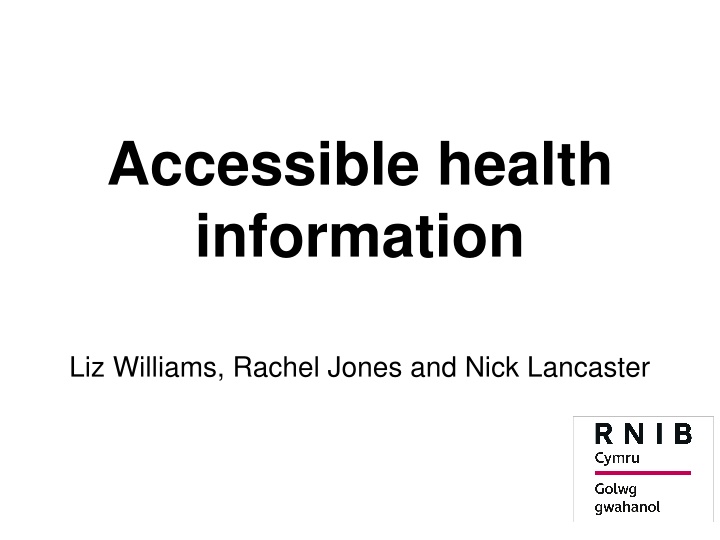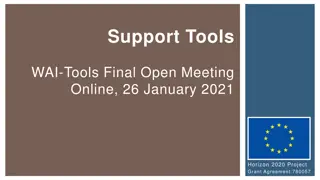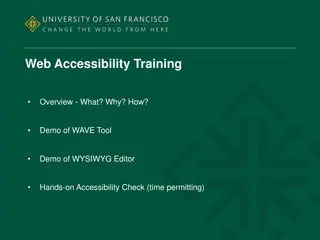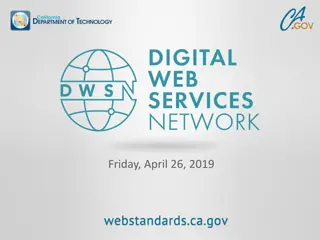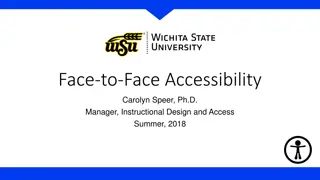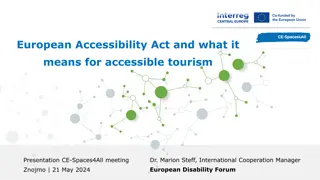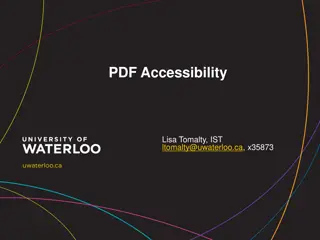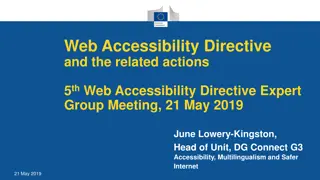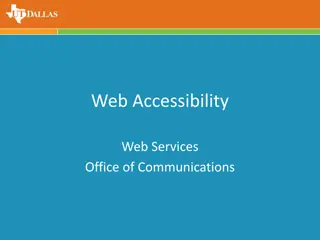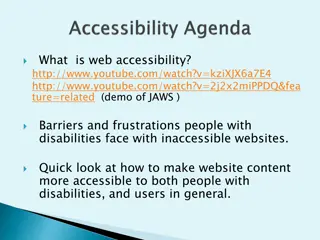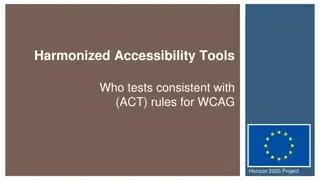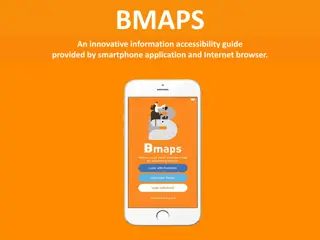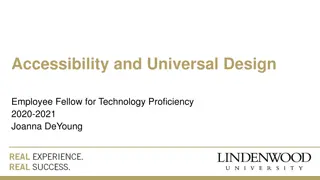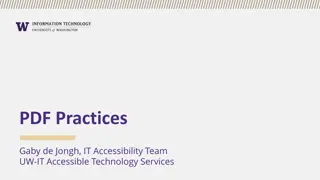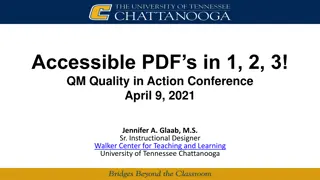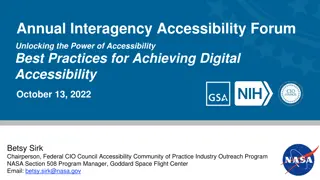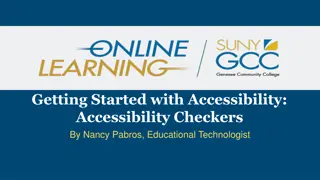Accessible Health Information and Recommendations for Improving Healthcare Accessibility
The content discusses the challenges faced by blind and partially sighted individuals in accessing healthcare information, highlighting that many have missed appointments due to inaccessible formats. It also reveals the lack of proactive inquiries about communication needs from healthcare providers. Personal accounts underscore the need for improvement, such as the failure to provide medical results in Braille. The recommendations focus on enhancing IT systems to address patients' required formats and providing staff training on the needs of individuals with sensory loss.
Download Presentation

Please find below an Image/Link to download the presentation.
The content on the website is provided AS IS for your information and personal use only. It may not be sold, licensed, or shared on other websites without obtaining consent from the author.If you encounter any issues during the download, it is possible that the publisher has removed the file from their server.
You are allowed to download the files provided on this website for personal or commercial use, subject to the condition that they are used lawfully. All files are the property of their respective owners.
The content on the website is provided AS IS for your information and personal use only. It may not be sold, licensed, or shared on other websites without obtaining consent from the author.
E N D
Presentation Transcript
Accessible health information Liz Williams, Rachel Jones and Nick Lancaster
Survey findings One in three (32 per cent) blind and partially sighted people have missed an appointment because they didn t receive information they could read. More than half said they had received information about their healthcare from their GP (56 per cent) or hospital (54 per cent) in an inaccessible format. Nearly nine in 10 respondents have never been asked by their GP or hospital about their communication needs.
I literally begged my GP to send my smear test results in Braille; it did not happen. It happened that my father-in-law saw the paper and read it and it was so humiliating, no woman should experience this. My medical records are my private affair!
Recommendations Welsh Government and NHS Wales: 1) Health service IT systems should have the functionality to automatically and routinely record and action a patient s required format. 2) Ensure all relevant staff are given the necessary training to understand the communication and information needs of people with sensory loss.
